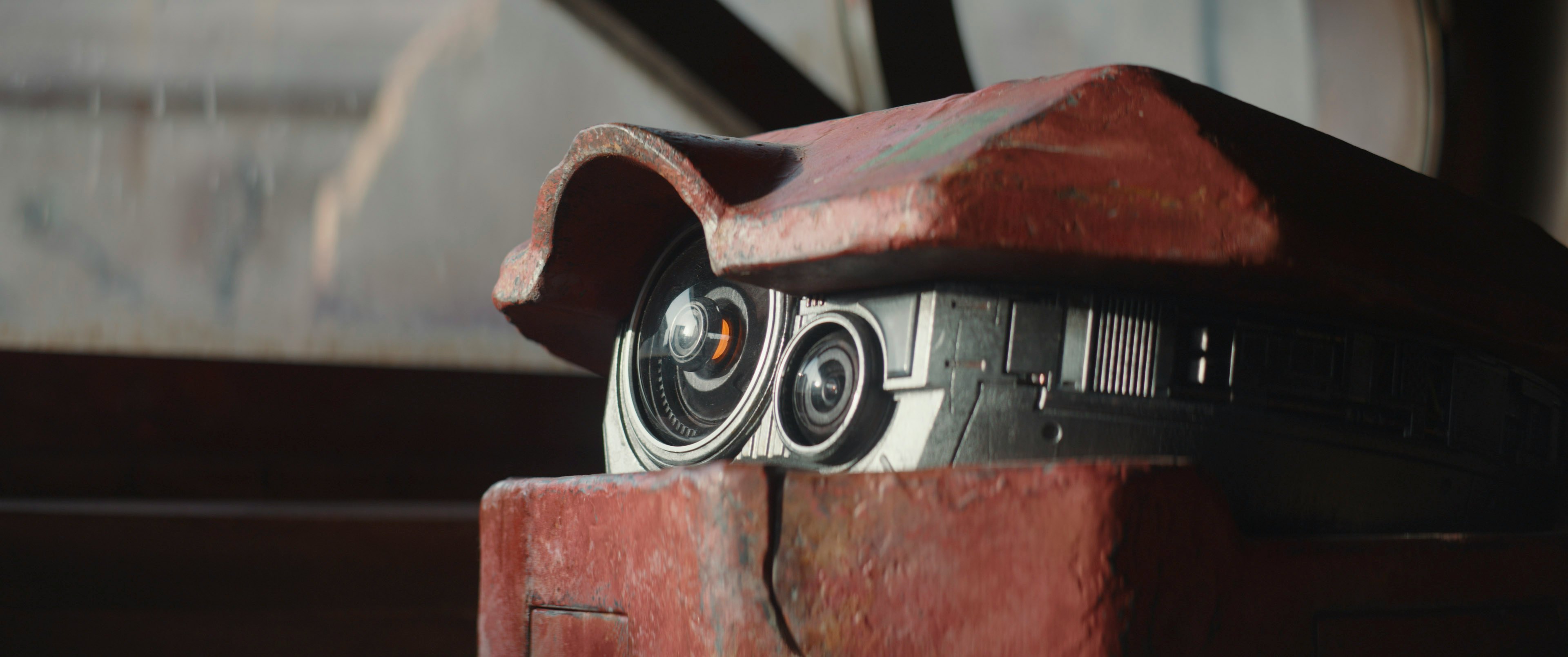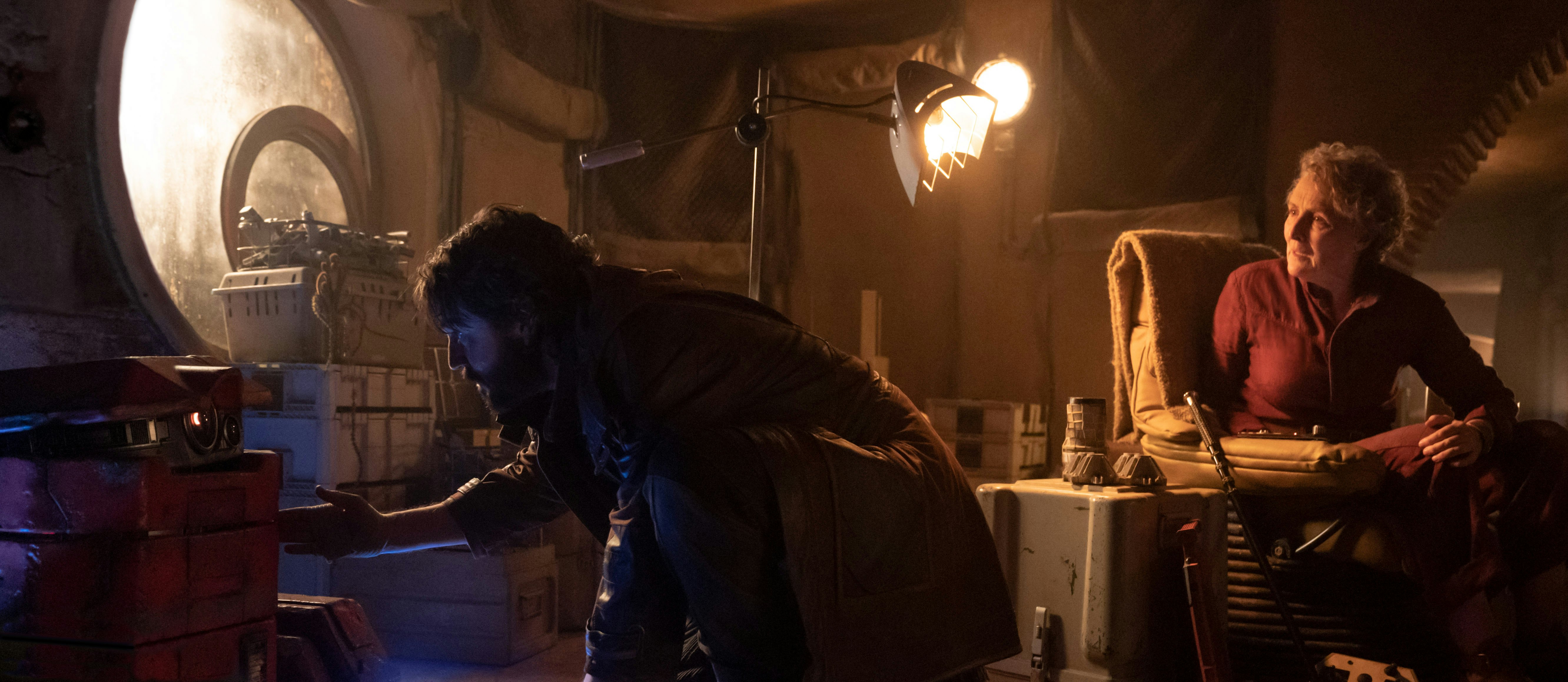
Droids have it rough. In the first Star Wars film, most were treated as mechanical slaves who constantly faced bigotry. The cantina bartender said, “we don’t serve their kind,” while Luke, a nice person, put a restraining bolt on both R2-D2 and C-3PO. But it turns out that this unethical treatment of droids wasn’t universal. In Andor Episode 11, scenes with B2EMO extend a brilliant “droids’ rights” sentiment from Solo. Spoilers ahead.
At the top of Andor Episode 11, “Daughter of Ferrix,” we see people cleaning out Maarva’s (Fiona Shaw) house following her demise. The scene opens from the perspective of B2EMO (Dave Chapman), the droid who lived with Maarva and Cassian, and it’s clear the shocked droid is grieving.
What’s surprising is how much our sympathies lie with B2EMO. Everyone in the scene treats him as a sentient being rather than an object. No one suggests erasing his memory or shutting him off. He’s spoken to with respect, which is how Andor has handled the character from the beginning.

How Andor connects to Solo
In Solo, the franchise broke new ground by depicting L3-37 (Phoebe Waller-Bridge) as an advocate of Droid rights. As in many science fiction franchises, artificial life in Star Wars is sentient, but unlike Star Trek or Westworld, the autonomy and rights of AI had never been explored. Before Solo, Star Wars was content to simply have droids exist, only occasionally suggesting they might be oppressed by organic life.
But after Solo, when L3-37 staged a droid revolt, the Star Wars franchise finally acknowledged that the biggest form of oppression in the galaxy happened under both the Empire and the Republic. Even Obi-Wan muses in A New Hope that he never seemed to remember “owning a droid.”

How Cassian is like Lando
The idea that organic people own droids, as opposed to the notion that droids are free, is very different in Solo and Rogue One than in the original trilogy. Although Luke is generally kinder to droids than Han or Leia, he still doesn’t treat C-3PO or R2-D2 like Lando (Donald Glover) treats L3-37 in Solo. Lando is significantly different from other characters because he views L3 as an equal. This is also true of Cassian in Rogue One, where his relationship with K-2SO is similar to Lando’s partnership with L3, rather than Luke’s relationship with R2-D2, where the droid is treated more like a prized tool.
Andor takes this a step further. Cassian, Maarva, and most people on Ferrix treat B2EMO like a person in a way that should be standard across the galaxy. You could argue that the people of Ferrix are less bigoted than humans elsewhere, and Solo takes place just five years before the events of Andor, so it stands to reason that L3-37’s revolt on Kessel is something people would have heard about and reflected on. And so it seems L3 made an impact. B2EMO isn’t just a pet or a tool. He’s a citizen of Ferrix.
Andor streams on Disney+.







